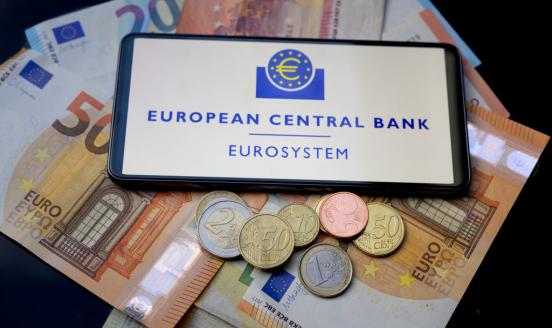The perils of more debt
Europe must find the “Ways and Means”.
The Bank of England has yesterday announced that it “will directly finance the extra spending needs of the UK government on a temporary basis…allowing the Treasury to bypass the bond market.” This will be done through the “Ways and Means” (sic) facility that will rise to an undisclosed amount, meaning probably big. This will allow the government to meet its exorbitant cash needs without having to pile on marketable debt.
This is an emergency facility but it smells of monetary financing. Yes, it is risky. That is why it is clearly stated that it will be temporary. And it needs to be done under the tight hand of the rule of law, that protects Central Bank independence from political involvement but understands that in times of “war” political leadership is not only desired, it is imperative.
Europeans, by contrast, are wasting valuable time over what level of conditionality is acceptable for countries to borrow from a properly adjusted European Stability Mechanism. While no one can deny the need for many and varied instruments to deal with the shock, in the process we are missing the bigger picture.
ECB decisions last week have enabled all sovereigns in the euro area to tap the markets for much needed cash. No country will be left without the necessary cash to fight the current pandemic on account of past fiscal sins. Decisive and timely.
However, as countries tap the markets to find the much-needed cash, they are seeing a very large increase in their levels of debt. For as long as the ECB is buying, access will be both safeguarded and it will be cheap.
Six months from now, our societies will be different. Hopefully better, as there will no longer be human losses to the pandemic, health systems will be unclogged and the economy will have been brought back from an induced coma.
But the economies will not necessarily be out of danger. A number of countries, hopefully small, will likely fail the multiple IMF and ESM fiscal sustainability tests. Then these countries will have no option but to turn to the ESM and “troika”. Equally, the eurozone will have no option but to significantly increase the corresponding ESM facilities if these countries are “too big to fail”. Euro area countries will then be forced to take the decisions that they are unable to take today, only this time under explicit market duress.
But to think that debt is a problem for this small group of countries only, is also short-sighted. The euro area entered this pandemic with very low and declining real interest rates. Our debt financing means of current expenditures will only aggravate and prolong this trend. Excessive debts will increase the private sector’s precautionary savings. Public indebtedness will tie up fiscal policy for a long time. Authorities will have little room to stimulate through investments, necessary for private investments to follow. This will further suppress the level of real interest rates and in turn the continent’s growth prospects and increase economic vulnerabilities. As the economy remains at the zero-lower bound, monetary policy will also be unable to help. What will macroeconomic policy look like then?
Although premature, the continents exit strategy from the fight against the pandemic will be affected by the economic choices we make today.
It is time to think of other options that involve monetary financing. One such option is to convince the ECB to monetise the debt by keeping it in its balance sheets ad infinitum. This however requires a pre-commitment on the part of the ECB that is rather unlikely to be given as it would be sealing its loss of independence. But it is also not desirable as we would be faced with the unholy trinity: high fiscal debts, a dependent Central Bank and no macroeconomic policy space. Nobody wants that.
This is why we need more permanent solutions that go in the direction of the Bank of England’s latest actions and possibly beyond. This is difficult in the current set up in the euro area, as monetary financing is prohibited by the treaties. But to think that treaties are designed to deal will all contingencies is an excuse for inaction. Inaction that we simply cannot afford. Europe must find the “Ways and Means”.



